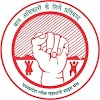 |
There is a reason to get worried about the health of the people of Madhya Pradesh, as well as that of the government healthcare apparatus. It has been revealed that 170 people out of every 1,000 suffer from illnesses of various kinds, lasting over one month to over one year- a clear indicator of a weak treatment mechanism.
A study by NGOs Child Relief and You (CRY) and the MP Lok Sangharsh Sajha Manch (MPLSSM) further states that there is only one doctor available for a population of 32,980 at district/rural level, one obstetrician and gynecologist per 1,83,165 people and one pediatrician for population size of 2,53,806 (as on March 31,2012).
In terms of area, the people of Dindori and Mandla faced the maximum burden of illness, at 248 and 235 cases of illnesses per 1,000 people respectively. They were followed by Satna (208) and Gwalior (185) districts. The study was carried out in 40 villages/urban settlements in the districts of Dhar, Indore, Sheopur, Gwalior , Damoh, Satna, Rewa, Dindori and Mandla.
Madhya Pradesh lead of CRY Jaya Singh told “ Continuous illness leads to poor immunity and poor earning capacity and the vicious circle continues turning women and children in the family malnourished and prone to more serious illnesses. ”
Women are the worst sufferers in most of the disease categories- especially ailments of the digestive system, reproductive system as well as anaemia, malnutrition, skin related problems and injuries, the report said. The reason is not hard to find: At district hospitals, here is a 55% shortfall of obstetricians and gynecologists and 48% shortfall of pediatricians, while at community health centers the shortfall is 69% and 58% respectively. Also there was a huge shortage of paramedical staff like nurses, auxiliary nurse midwives (ANMs), technicians and pharmacists.
The apathy for government healthcare centers is also very potent. Almost 84% of the population in the area under study (predominantly poor, rural and tribal areas in nine districts) shun government health care system and instead prefer the costlier private medical care or even self-medication and/or traditional treatment meted out by quacks. The reasons for not visiting government health centers are: Lack of proper treatment facilities, unavailability of doctors, sub-health centers not opening regularly and proper medicines not being available at these centers. The study details would be soon submitted to the state health department and the national state commissions for protection of children’s rights. Principal secretary of the state health department Praveer Krishna, when contacted the health services situation was not too good in the state, but added that he would like to read the study first.






0 Comments